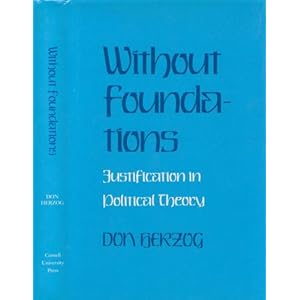A qualification about this guest post first: Douglas, of course, does not have the time to engage with all critical points in the comments of these posts. Occasionally, however, he may write a post or two to clarify one or the other point, develop something I have said, or engage with reader comments (e. g. today Daniel Kirk and his comments here and here). I particularly urge readers to study DC's first point below, in response to Francis Watson, which I think will clarify matters considerably. I now hand over to DC:

1. Which major commentator on Romans does not reproduce JT
(Justification Theory) when exegeting Romans 1-4? I grant you that Jewett, Dunn, and Wright do not in part. But who else? Stowers? Is that it? Every other major commentator runs JT through Romans 1-4 in a tradition stretching back to the Reformation and now encompassing all major Catholic as well as Protestant commentaries. It almost completely dominates the commentary tradition on Romans 1-4. JT also dominates almost all the minor commentators on Romans, the NT Intros-, the Introductions to Paul's theology, the treatments of Paul's theology when treating justification, etc. etc. Name me a study bible that does not run it. JT is everywhere.
Another way of putting this would be to say, which major commentator does not get to 3:20 and say something like "Paul has just proved that all fall short of God's just requirements, and are under indictment, including Jews, so that the gospel can now be preached to all without distinction..." Even the revisionists turn around and say something like this.
When Francis says that no one attests to JT, he's not really talking accurately about what JT is actually claiming in my book, which is the foregoing. He's saying (presumably) that broader reconstructions of Paul's theology generally don't commit to JT in toto. They find some way to amalgamate it with other views. So do most leading Reformation thinkers. (I don't think that Melanchthon does much other than JT, but even he has some alternative material in play.) But of course they do! You have to. There is so much more in Paul than JT.
But nobody is disputing this.
In fact, I would make a slightly different claim in relation to Francis and others at this point, namely, that these broader syntheses are incoherent. When we press on them we find that they fall apart. The explanations we have been given at such points rest on special pleading and poor exegesis (etc.).
Francis's straw man critique is a clever rhetorical move, because it makes my extended critique look irrelevant. But it's not actually a valid move, and on all sorts of levels. (It's not a true account of my position; it asserts a truism; it isn't a true account of the church--see below; etc.)
2. Now as to JT not existing. In addition to the commentary noted earlier, which parts of the four spiritual laws, the Alpha course's teaching on the atonement, the Navigator B pack's teaching on the atonement, or Billy Graham's model of salvation--to note just a few modern Christian icons--do not reproduce JT? Even more disconcertingly, which part of Bultmann's Theology of the New Testament is not basically committed to a variant of JT?
Which part of John Stott's Basic Christianity does not run JT? Almost every single student I teach at the Divinity School says to me "JT" sums up exactly what they have been taught about the gospel. There are some exceptions, but they are in the minority. Everyone I meet at bible study in prison thinks in terms of JT--every single one (cf. Rom. 3:10-18), although this sample is admittedly not large. Conservative organizations are excluding and firing people for not endorsing key aspects of JT. To not endorse JT is "heretical." JT is, moreover, extremely close to modern political and philosophical Liberalism. So is it really likely that JT does not exist?
You need to do a bit more work, then, if you want to marginalize JT as an interpretative tool than just say "it doesn't exist." There's an awful lot of evidence that says it does, and so you need to deal with it in some other way. I'm open to this, but if you don't actually deal with this material then you risk looking like someone standing in a field at midday with his/her eyes closed saying "the sun doesn't exist" (to wax Wrightian for a moment).
I can understand how Francis might miss this stuff, given his location. Perhaps JT is also less emphasized in hard Reformed circles as well, Daniel. But I suspect that neither of you are in mainstream conservative, or even mainstream church locations and traditions in these respects. All my soundings suggest that JT is ubiquitous. (I wish this wasn't the case; I really do. But I fear that it is.)
All-in-all, my hunch is that if you want to criticize Deliverance--and Francis seems to want to--then you would be better working some other angle. Rejecting the existence of JT risks making you seem a little out of touch. Also, another line of critique might engage with a position that I'm actually committed to arguing. The argument that JT doesn't exist has got no future. Ironically, you have actually set up a straw man.
Labels: Guest Post, Review of Deliverance of God
 I feel an extended meditation on the point of DC's portrayal of Justification Theory (JT) was, er, justified, given the many misunderstandings and unfair dismissals in peer reviews.
I feel an extended meditation on the point of DC's portrayal of Justification Theory (JT) was, er, justified, given the many misunderstandings and unfair dismissals in peer reviews. 









